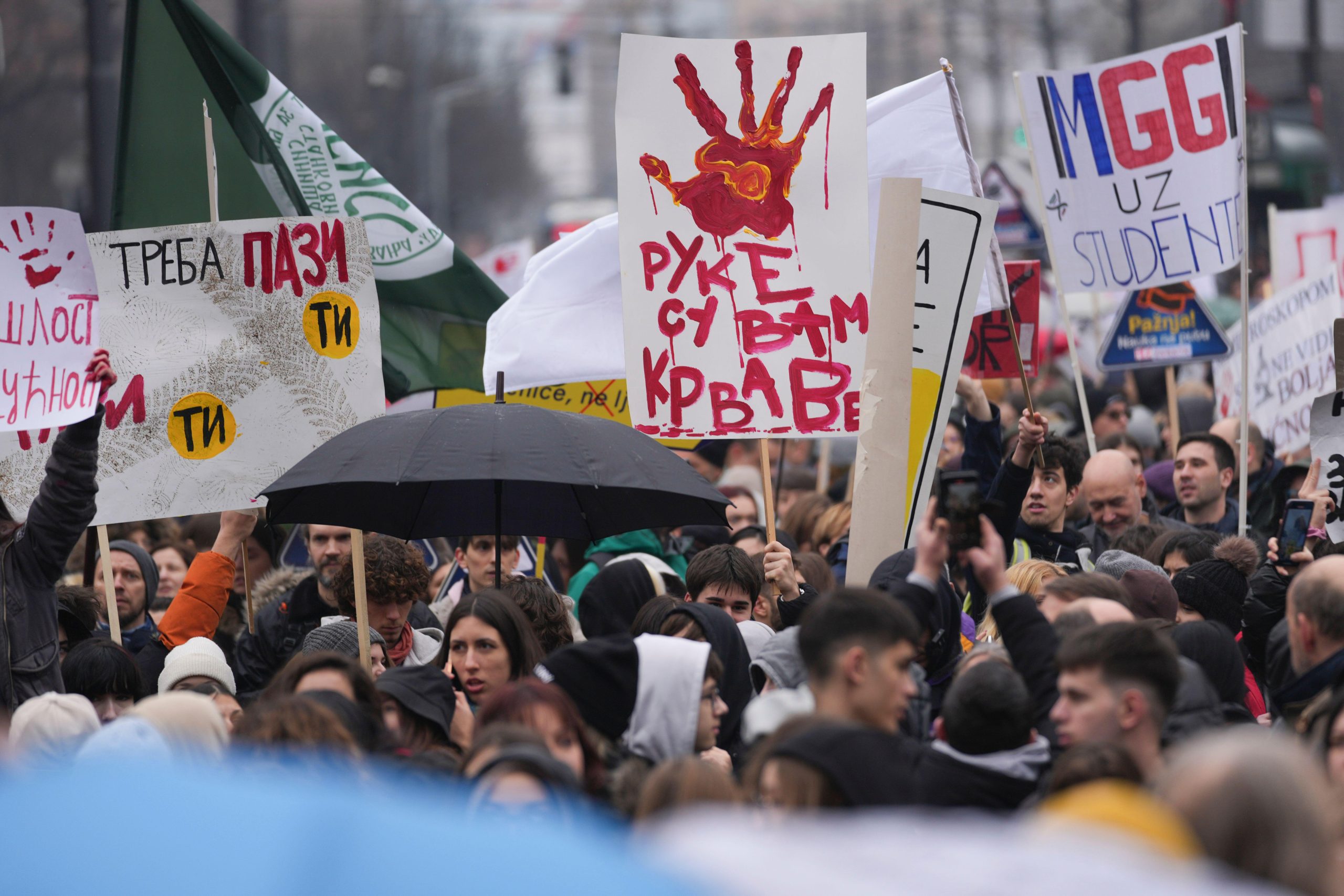Protests have the power to rally people, express objection to political decisions, and in the most successful cases, elicit change. They are a fundamental form of self expression, and a crucial mechanism of any democracy. This week, we saw South Koreans take to the streets to protest President Yoon Suk Yeol’s shock move to impose martial law, which temporarily placed the military in charge and suspended many civilian rights, including the right to protest.
The move was immediately declared illegal and unconstitutional. The leader of the country’s largest opposition party was able to rally MPs to vote down the declaration in parliament, and ordinary citizens to protest against it, despite the ruling that they couldn’t. Within 24 hours, Yeol’s attempt was toppled and he now faces impeachment charges.
South Korea’s bizarre turn of events shows the potential effectiveness of collective action against authoritarianism. The power of persistent campaigning was also brought to light in Iran this week, when the jailed rapper and activist Toomaj Salehi (a former winner in the arts category of Index’s Freedom of Expression Awards) was released from prison. He had previously been sentenced to death (later overturned) for voicing support for anti-government protests, including the Woman, Life, Freedom movement in 2022. Tireless international protest from campaign groups – jointly led by Index, the Human Rights Foundation and Doughty Street Chambers – undoubtedly put pressure on Iranian authorities to permit his release.
But of course, attempts to congregate against injustice are not always successful, or accepted. In Georgia this week, where we have seen a degradation of democracy under the Georgian Dream party, there was a horrendous crackdown on peaceful protesters.
Since the country’s contested election in October, where the party secured a fourth term, citizens have come out in droves and have been met with state violence, including being physically assaulted, and attacked with water cannon and tear gas. You can read more about the steady decline towards autocracy in Georgia in this piece by Index CEO Jemimah Steinfeld, who visited Tbilisi in October.
This response is just one example of how peaceful protest is being eroded, despite it being protected as a human right under international law. We’re seeing examples of this all over the world. Last month, Clemence Manyukwe reported for Index on how anti-government protesters in Mozambique were injured and even killed following the country’s disputed presidential election.
And even when violence isn’t used, legal mechanisms can be utilised to undermine people’s right to show dissent. On our own shores, the previous government introduced the Public Order Act, which has substantially restricted people’s ability to protest freely, and has made it easier to criminalise protesters by lowering the threshold at which police can arrest them. The result has been hundreds of activists being arrested and prosecuted, including the climate activist Greta Thunberg.
Earlier this year, the High Court found that the former home secretary Suella Braverman had acted unlawfully in introducing this legislation, but the Home Office appealed the ruling. The new Labour government has continued the appeal, which has spurred criticism from human rights organisations. Katy Watts, lawyer at Liberty, said: “For the countless people currently in the over-stretched criminal justice system because of these unlawful regulations, we must see the law quashed and the government respecting our fundamental right to protest.”
Protest movements are not always against governments. Also in the UK this week, we saw a large media workers’ strike from staff at The Guardian and The Observer over the sale of the The Observer to Tortoise Media, an acquisition which has proved controversial.
Whilst the sale of a business does not, on its own, represent a risk to free expression, concerns have been raised over whether there are safeguards in place to protect the newspaper’s editorial independence, as one of the few remaining liberal news outlets in the UK. There have also been concerns over the ability of company staff to speak out publicly against the deal without fear of punishment or recrimination, with some employees reporting being warned against voicing their opinions freely.
Index was one of many signatories of a letter addressed to The Scott Trust – which owns the Guardian Media Group – and Tortoise raising concerns about the risks to free expression from the mechanisms of the sale. Despite the 48-hour strike, the sale went ahead this morning, indicating that protest is not always an effective mechanism for change.
But whilst it may not always result in the desired outcome, it sends a message – whether to governments or private businesses – about individuals’ rights to express their disapproval or outrage. The ability to do so without fear of criminal reprisal or violence is a fundamental right and must be protected at all costs.






